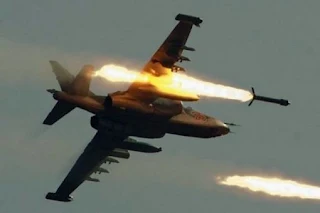Published: June 14, 2025
By Grassroots Mirror Team
Israel Launches Surprise Attack on Iran: What You Need to Know
In the early hours of June 14, 2025, Israel launched a massive military operation against Iran, dubbed “Operation Rising Lion.” The offensive targeted Iran’s nuclear facilities, key military sites, and top military officials, marking one of the most aggressive moves in Middle Eastern geopolitics in recent years.
What Was Targeted in Iran?
According to military analysts and live reports:
Over 100 Israeli aircraft were deployed.
Precision strikes hit nuclear facilities in Natanz and Fordow.
Residences and offices of top IRGC commanders were bombed.
Reports indicate Mossad also played a covert role.
The goal: cripple Iran’s nuclear capabilities and limit future threats.
Who Was Killed? Major Losses for Iran
Israel’s strikes led to significant casualties:
Hossein Salami, Commander of the Islamic Revolutionary Guard Corps (IRGC).
General Mohammad Bagheri, Iran’s armed forces chief of staff.
Multiple nuclear scientists and military strategists were also confirmed dead.
These targeted killings are seen as a devastating blow to Iran’s military leadership.
Iran Strikes Back: Drone and Missile Retaliation
Iran responded with:
Over 100 Shahed drones launched toward Israel—many intercepted.
Ballistic missiles targeted major Israeli cities like Tel Aviv and Jerusalem.
Civilian casualties reported in both nations.
This tit-for-tat has raised fears of full-blown war in the region.
Civilian Impact and Global Fallout
Israel: At least 3 civilians dead, 60+ injured, buildings destroyed in Tel Aviv.
Iran: Over 80 people killed, with hundreds wounded across Tehran and Natanz.
Hospitals overwhelmed, airspaces shut down, and people sheltering in bunkers.
Meanwhile, oil prices surged globally, and world leaders issued urgent calls for peace.
International Reactions
United States: Denied involvement in the strike but aided Israel in defense.
UN, EU, UK, France, and Turkey: Urged restraint and diplomatic dialogue.
Arab nations: Expressed deep concern, fearing regional destabilization.
The UN Security Council is expected to hold an emergency session within 48 hours.
What This Means for the World
The current Israel-Iran tension could:
Disrupt global oil supply and raise fuel prices.
Trigger wider military alliances or proxy conflicts.
Intensify nuclear proliferation concerns in the Middle East.
For now, the world watches—holding its breath.
Analysis: Is Peace Still Possible?
While both nations warn of “further actions,” many experts believe diplomacy can still prevent a broader war. However, if another round of strikes occurs, regional stability and global markets could face severe consequences.
From Grassroots Mirror
At Grassroots Mirror, we believe global events ripple down to the local level. War anywhere affects peace everywhere. Whether through fuel hikes, displacement, or political instability—we must stay informed.













0 Comments
Thanks so much for your comment